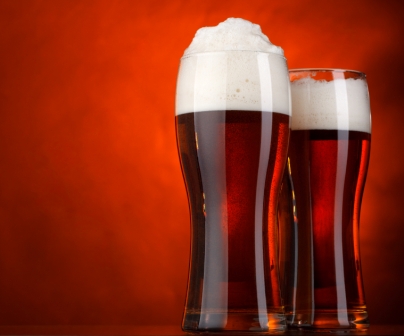
This week I have 6 tips for minimizing your beer brewing losses when home brewing:
- Bag or Strain Your Hops – Hops matter is one of the largest contributors to trub losses in your brewing kettle, particularly given today’s highly hopped beer styles. Whether you are boiling, whirlpooling or dry hopping it is best to bag your hops or use some kind of hop strainer device (this is the one I use) to reduce the losses from hops.
- Use a Refractometer – While it does require some extra calculations to determine the gravity of fermenting wort with a refractometer, you need only a few drops to take a reading, while a hydrometer requires roughly 8 oz (0.25 l) of beer to get a good reading.
- Do a Vourlauf for All Grain – The “vourlauf” is a step taken at the beginning of the sparge process in all grain brewing where you draw the first few quarts of wort and place it back in the mash tun. This is generally done until you get clear wort coming from the lauter tun with no visible grain bits. The purpose of the vourlauf is to allow your grain filter bed to “set up” so it is ready to filter out grain particles. This will result in less grain trub in the wort during and after the boil.
- Minimize Transfers – Every time you transfer your beer from one container to another you will lose some wort or beer. Unless you are aging your beer for an extended period, a secondary fermentation may not be needed. Even if you are transferring from pot to secondary you can, consider transferring the trub with the wort. Brulosophy did an interesting exBEERiment on this here.
- Consider a Conical Fermenter – Conical fermenters for beer brewing help by compacting your trub, yeast and sediment in the bottom of the fermenter, and also make it easy to remove it. This means you will have less wasted beer when using a conical. Here are some advantages of conicals and there are a wide variety of plastic and stainless conicals available now.
- Cold Crash Your Beer – Dropping the temperature of your finished beer will aid in the flocculation and settling process. It will help yeast, proteins and polyphenols to settle out of the beer more quickly and will reduce the required aging time. A compact sediment layer results in less waste when ready to bottle. In addition, cold crashing can improve your beer clarity.
Those are six useful tips to help minimize your beer brewing losses so you can enjoy more great home brewed beer! Thanks for joining me on the BeerSmith blog! Please subscribe to the newsletter or podcast on iTunes for more articles and sessions on home brewing!